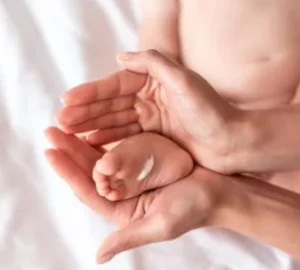Having a baby can be a hair-raising experience, but at the same time, you experience an overwhelming sense of joy and euphoria too. Feeling over-emotional in the first few days after your baby is born is common.
Moms are usually sleep deprived and frustrated and are new to the challenges of a having a baby under their care. Don’t be surprised if you feel exhausted and tearing up easily—it is all part of the game when you’re having a baby.
Women do feel sad and go into depression for a brief period after giving birth. When the depression lasts a longer time, it develops into a condition called Postpartum Depression.
If you are dealing with Postpartum Depression, here are some things to keep in mind.
Symptoms of Postpartum Depression
It is common to feel anxious, restless, irritated, or tearful after giving birth.So, it is ok (really!) if you find yourself crying over silly things, nervous, or worried about being a good mother. All these feelings are postpartum baby blues and usually disappear after couple of weeks.
Postpartum depression is not long lasting and would fade away in a month after childbirth. A mother in this condition would be agitated, show changes in appetite, feel worthless, suffer from loss of concentration and energy, or even have thoughts of death in extreme cases.
Women with postpartum depression are unable to take care of themselves or their baby. They could have negative feelings towards the baby or worry intensely about the baby.
Causes of Postpartum Depression
Women go through frequent mood changes, which are hormonal shifts that happen with pregnancy and childbirth. Estrogen and progesterone levels are increased during pregnancy.
After delivery, the levels drop suddenly, which brings about the mood changes. When the hormones come back to their pre-pregnancy levels in a week or two, the baby blues would disappear.
How to tackle it with family
Support of your family, friends, and plenty of rest—that’s what you need!
Thoughit is quite challenging to adjust to every need of your baby, it is equally important to take care of and not neglect yourself. So, ask for help whenever possible and let family help with household chores or errands while you get your hot shower and sleep.
Depriving yourself of sleep could make the baby blues worse. Try to make time for light exercise—something as simple as a walk could lighten up your mood. Sharing your feelings with your partner or a friend can help you feel better.
Should you consult a doctor for a postpartum depression?
While baby blues disappear after a week or two, postpartum depression is intense and persists for much more time. A new mother who feels life is worthless or has thoughts of hurting her child or herself need to get help immediately.
Sometimes, doctors prescribe medication that would eliminate the symptoms of postpartum depression. Professional talk therapy also helps in reducing symptoms. It is also important to eat a healthy diet, exercise, and take enough rest. In a couple of weeks’ time, you would be feeling better.




